| Umělec magazine 2006/1 >> Afkar Media | List of all editions. | ||||||||||||
|
|||||||||||||
Afkar MediaUmělec magazine 2006/101.01.2006 Vít Šisler | Middle East | en cs |
|||||||||||||
|
Interview with Radwan Kasmiya
Will it be possible for people in Europe to buy your games Tatha al-Hisar (Under Siege) and Quraish? Tahta al-Hisar will first be issued in the Middle East only. In the Middle East we have a network of distributors and we know how to advertise the product and such things, but we will have to conduct research for the market outside of the Middle East. We want to get Tahta al-Hisar to Europe, because in European media Palestinian culture is often presented from one point of view only and the other one is missing. With Quraish, we faced problems with archaic Arabic, we didn’t have anyone who was able to translate it in a proper way, however, we eventually managed it somehow. But even if the game was released for Arabs only, it is a success for us. Arabs are not used to reading books, in general, less than other nations, they depend mainly on TV, movies, newspapers, magazines… and computer games. That is also one reason why we made a game about the history of Islam. I know that you do not like to talk about Tahta al-Ramad (Under the Ash) a lot, as it was your first game and you consider it dated, but I am interested in what the response of the public to it was? The players of the game were Arabs only - Under the Ash was never translated. But in general, the players were really keen for the game, they looked at it with pride – do you know the term “Digital Dignity”? They saw that Under the Ash offers a true perspective. The player community is interested in games which offer a different point of view, whereas all the games here, like Delta Force, involve you shooting Arabic-speaking enemies… The Arab players felt that was wrong, after completing such a game you feel some bitterness, you feel like… like being guilty a bit, do you understand? That was the reason why Under the Ash was accepted so positively among them. It offers a different point of view and mainly the game is not about reverting to the usaul scenario, the game is not about an Arabic-speaking hero shooting different-language-speaking enemies. Under the Ash had a story, and it was not a simple action story. The game evokes emotions, I know some players who cried during this game. After completing the game you can’t separate the emotions, you feel something between joy and sadness. This game could ignite fire inside the players. You have mentioned Delta Force. Kim Ghattas, a BBC correspondent wrote about Afkar Media and she said that your games are a reaction to Delta Force and similar anti-Arab games. But you deny this… Everybody understands the message of our games in the way they want to. Kim Ghattas wanted to comprehend this in a simple framework, but she did not realize that we come with brand new thinking. It is not a problem, it is just her view. I am happy that her article was printed, I believe in exchange of information. I have talked about how in Delta Force or now in Spring Break Fallujah you are always playing an American soldier and your task is to accomplish a mission. But what is the mission? To “seek and get rid of” the terrorists who are often being depicted as Arabs. In the States, according to the last elections, almost half of the nation do not agree with the politics in Iraq. I think that every society has its right to have its own opinion, but nobody has the right to deny the opinion of the other, but that is exactly what is happening now. The Americans in Iraq closed some channels, e.g. al-Jazeera, they even attacked their building and killed their reporter. There is information they want to publish and information they do not, and it is exactly the same in video games. In the games from Kuma/War you play as strong and intrepid American soldiers who help the Iraqis to promote democracy. The American game companies reflect American society as we reflect Arab society. You have said that your games are not a reaction to Delta Force etc., but what is the main difference? In Tahta al-Hisar you are also playing a Palestinian killing Israeli soldiers… You know, if you compare a Hollywood movie with a European one, the Hollywood one will be splendid and gorgeous, with exploding cars, helicopters and so on, but European movies are deeper. There is a similar distinction between our games and, say, Delta Force, I think. It was our aim to show what happens in Palestine behind politics, to show people stories and problems. The civilian, who takes a gun at the beginning of the game is killed by soldiers in the end, but he took the gun only for defense. I think that the main message, which we try to spread throughout the game, is that what happens in Palestine is a result of some problem, and we also offer an opinion on what the cause of that problem is by showing it. Before you can solve a problem you have to describe it and be aware of it, and we wrote a book about this problem with our game. We do not try to give an answer, we just present the topic, we can not change someone’s opinion by a videogame, but we can move the player to go and search for the answers on his own. You raised an interesting point in that all the “heroes” who take a gun are killed sooner or later in the game… In Tahta al-Hisar there are five main characters who represent archetypes of Palestinian society. There is a lad who believes that he can change the world with a gun, there is another one who discover after some time that this is not possible and he starts to collaborate with the Israelis, he hopes that this will lead to a solution. There is Abu Himayn who observes everything from afar, an old man who remembers how things used to be before and how they are now. And finally Maan, a schoolboy who sees his school always closed and the houses being demolished. With a group of his friends he used to throw stones at Israeli tanks until he is finally killed. I am afraid that exactly the thing which is happening now –killing the youngest generation of the conflict – is killing the future of Palestine. You have told Kim Ghattas that you can not see a solution for Palestine, do you still think the same? No society wants to live in a war, I believe in peace in Palestine, but I also believe in justice. If it should be strong and stable peace, it has to be just. Tahta al-Hisar is based on reality, for example, a majority of the missions have real backgrounds, and that because of this reality the game is objective. However, the Israeli point of view seems to be completely missing. Moreover, all Israelis who you meet in the game are soldiers, you can see them only through the sniperscope or when you are hiding in front of them. Surely these elements of the game lead to a partiality? In reality not all the Israelis you can meet in Palestine are soldiers, what about the peace activist or just normal people… there is no evidence of them in the game. I understand, you say that the game is biased… In such a topic objectivity is a slippery thing. I do not think a game or movie exists at all which could provide both points of view in a non-biased way. Even in books where the authors generally try more to achieve this state, objectivity is not fully possible. For me objectivity means that there is no lie in the game. To present both points of view is not possible even because of gameplay. Of course we know, that Israeli society is not homogenous and their opinions vary. Israel is a democratic state with lots of trends and tendencies, many people do not agree with the official politics against Palestinians and many others think their politics should be even tougher. There are activists and fundamentalists, like elsewhere. For me, as an author of the story, the balance means an absence of lies. In the name of balance I would not add a mission to the game in which you would as an Israeli soldier shoot Palestinians… Of course not, but I am speaking about something different. In Tahta al-Hisar it is not possible for interaction with the Israelis. They are presented only as armed enemies, that creates a message which has nothing to do with gameplay. First off, there are not only soldiers, you will meet even Israeli civilians there, they freely wander around in some missions. Not like main characters, but you can not open fire on them, that is quite a clear message, isn’t it? If you are in a cross-fire with soldiers and you harm a civilian you lose the game. So, this message is included in Tahta al-Hisar, although not in a direct way. And there is a second thing, in the reality there is a green line between the citizens which Palestinians can not cross and even the Israelis do not cross it. There is in fact racial segregation. If Palestinians and Israelis demonstrate alongside the line there are soldiers between them and each group demonstrates with a different aim, against Israeli politics. People in Gaza demonstrate because they want to live, Israeli activists demonstrate because they do not agree with the government politics. I can not add something to the game what does not exist in reality. Beside that, we tell a story, we do not search a justification for one or other side of the conflict. The opening mission of the game involves Baruch Goldstein - aren’t you afraid using such a topic in a computer game? What about the feelings of those whose relatives died there? Aren’t you afraid of their reactions? In European context such utilization would be considered as non-ethical… Arab society is different on this point. The concept of personal freedom and personal rights varies in the Middle East from Europe or America. In Europe it could be seen that the utilization of victims in game is non-ethical. People would consider it as making money from the sacrifice and blood of their relatives. By the way, we will not profit from Tahta al-Hisar, we will just pay back the development – you know, what Arab software markets are like. People often regard us as someone who helps in making sure that their relatives would not be forgotten. Once a woman called me, she cried and told me that what we depicted in our game had happened in reality to their relatives, their kids. She wanted to thank me that they will not be forgotten. While we are talking about the reactions of the game’s players, I have seen in the strategy game you are working on, the Quarish, that there is one mission, the Besiege of Medina, where the player represents a chieftain of a Bedouin tribe. He has got an option to accept Islam and take the side of the Prophet or not, and attack Medina. But, if he won, he would in fact endanger, or stop, the spreading of Islam. Aren’t you afraid of the reaction of orthodox believers? Of course, not all people would agree with this game, but I there will be few. Our task is to persuade them. I don’t want to encourage any fanaticism, but I understand my society and I know the way in which people think. It is true, that if you present what have you told me in the very same way to them, you would see very strong and exaggerated reactions. But we deal with them in a different way, if they play our game they will understand what it is about and what is behind it. The game maps real history of Islam, if someone could not accept this history it is just their problem. Through Quarish we want to present the real history of Islam without sensations and myths. In this point we challenge two different things, the negative stereotypes of the West and our own superstitions. The web page of Afkar Media declares that your aim is to address Arabs and Muslims all over the world in a way that respects their cultural heritage in order to make sure they feel on par with other nations so they could transform from receiving civilization to developer. Isn’t that too much of an overestimated aim for a video game company? There is one English proverb: “If you aim, aim high.” You have to have something like that in Czech also. It is not our aim to sell one or ten thousands or million copies of our game… Really not. Our aim is to contribute to the balance of cultures. We respect other cultures and civilisations, but in society, in which we live, there exists certain ignorance. I know that my society doesn’t understand the West correctly and I also know that the West doesn’t understand us correctly. We are trying to build a bridge, advantageous for both sides. We are trying to break the stereotype models of thinking on both sides, when the West is for Muslims being presented by Britney Spears and our culture is for the West is being presented by Osama Bin Laden. This aim is broad and long-term, it is more about approach and certain philosophy… In the world there is now a movement in general towards the production of persuasive video games with political aims. In USA or China the governments spend a lot of money to strengthen the national identity in youth population, even through video games. What do you think about it? Beware, this certainly is not our aim, to strengthen national identity among Arabs or religious identity among Muslims and to determine ourselves in this way against the others. To strengthen identity in such way leads only to increasing tensions among people. The same thing is to describe current conflicts as the war of religions or cultures. Regrettably, that is exactly what the American media is doing. The whole thing started in America in the Cold War, the bad guys in movies were Russians or spoke Russian. Now the Americans are even increasing the doses on these stereotypes. You have played al-Quwwat al-Khasa, what do you think about this game? Of course everyone has the right to produce a game according to his own beliefs, but for me it is an error to make a game literal with a clear political message, but we have an open market and we have to share it. We always try to coin the idea of equality. I am well aware of racism and over-exaggerated national self-identification. What I want to add is that in every place there are people who seek understanding, dialog. That is what we are seeking, but the conditions in which we work are really hard. We try to be sincere in our work, we do not work for money, not at all. We are not financed by anyone and we do not want to be, we want to keep our independence. I believe that in every society there are people like us, who try to act in positive way.
01.01.2006
Recommended articles
|
|||||||||||||
|
04.02.2020 10:17
Letošní 50. ročník Art Basel přilákal celkem 93 000 návštěvníků a sběratelů z 80 zemí světa. 290 prémiových galerií představilo umělecká díla od počátku 20. století až po současnost. Hlavní sektor přehlídky, tradičně v prvním patře výstavního prostoru, představil 232 předních galerií z celého světa nabízející umění nejvyšší kvality. Veletrh ukázal vzestupný trend prodeje prostřednictvím galerií jak soukromým sbírkám, tak i institucím. Kromě hlavního veletrhu stály za návštěvu i ty přidružené: Volta, Liste a Photo Basel, k tomu doprovodné programy a výstavy v místních institucích, které kvalitou daleko přesahují hranice města tj. Kunsthalle Basel, Kunstmuseum, Tinguely muzeum nebo Fondation Beyeler.
|







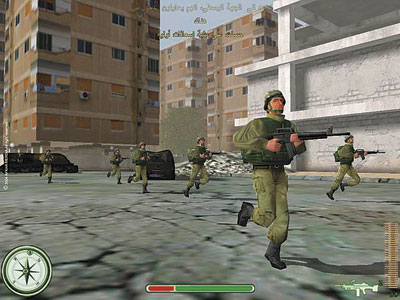
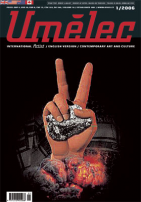




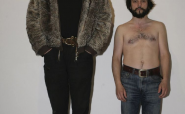
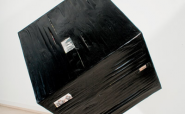
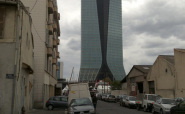

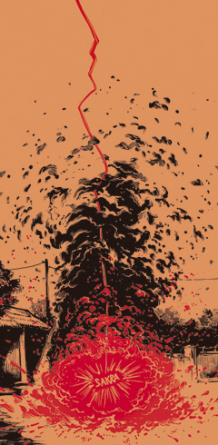











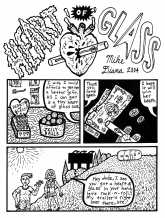

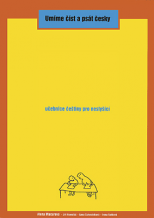
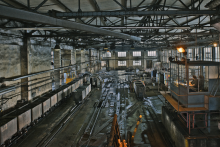


 We Are Rising National Gallery For You! Go to Kyjov by Krásná Lípa no.37.
We Are Rising National Gallery For You! Go to Kyjov by Krásná Lípa no.37.
Comments
There are currently no comments.Add new comment